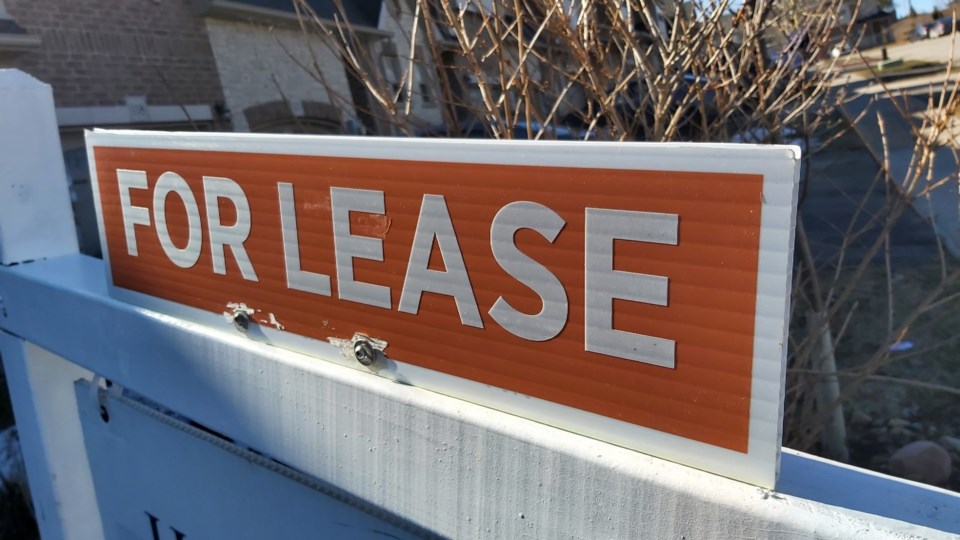Cambridge is a key market in a Toronto real estate company’s plan to purchase and build $1 billion worth of single-detached houses across Canada and rent them to millennials who’ve given up on the dream of owning their own home.
Core Development Group Ltd. announced earlier this spring it had launched a new wholly-owned subsidiary called Avenew with a focus on the single-family rental sector.
The goal of their $1 billion fund is to purchase existing supply and build new single-detached homes in several cities, including Cambridge, to meet growing demand for rentals.
Avenew studied 30 markets across Ontario before selecting Cambridge from an initial list that includes Barrie, Hamilton, London, Kingston, Peterborough and Huntsville. They’ve since added Guelph with a goal to have 4,000 rental units in 20 markets in Ontario, Quebec, Atlantic Canada and BC over the next five years.
According to the company's website there are over 20,000 homes sold annually in Ontario that fit its investment criteria.
In an email response to CambridgeToday's question about what this means for first-time home buyers in an already constrained local market, Corey Hawtin, founder and CEO of Core Development Group, says there should be no fear his company will engage in bidding wars.
"I think the thought is, because we have all this institutional money that we will outbid anybody to buy a home. But we have really strict buying parameters, and we will never out-pay the end-user," he said.
Benjamin Tal, Deputy Chief Economist at CIBC Capital Markets Inc., explained that the company has simply come up with "a way to ease the pain of when it comes to affordability" and "introduce a rental solution to the puzzle we call the GTA housing market."
“We need more rental units, more purpose-built rentals in order to make sure there is an affordable channel in this environment. What we want to see is more supply coming to the market, but more purpose-built supply, not just condos,” he adds.
As first reported by the Globe and Mail this week, the strategy to develop a large scale home rental operation first became popular south of the border following the 2008 financial crisis. Core Development Group is the first to do it in Canada.
The company's research shows a steady decline in home ownership rates in major Canadian cities and an estimate that 68 per cent of millennials in the GTA are not likely to buy. Condominiums and apartments, it says, don’t appeal to the vast majority of those looking for a home.
John Teixeira, president of the Cambridge Association of Realtors, sees the move as a positive for the city of Cambridge.
“They’re looking at ‘how much can they make on one property’, renting it out to clients. I think that’s a wise decision,” he said.
“If you have a big player that wants to basically invest a billion dollars in real estate in Canada, its a great investment, especially in the areas where they want it.”
Teixeira says the key takeaway from Core Development’s decision is that even though housing prices have risen considerably over the last five years, Cambridge is still a “very appealing” market.
“This further emphasizes for first time home buyers or people moving to this area that real estate is a good investment.”
The Cambridge Association of Realtors reported the average sale price of a home in May was $785,125 compared to $574,476 in 2020. That represents a 37 per cent increase year over year.
“That’s good news for our area. That means something’s going to happen obviously in the long term,” Teixeira said.
Some real estate experts have expressed concern about how the investment strategy could lead other corporate investment firms to get in on the game and limit access to homes in an already constrained market.
But Teixeira doesn’t see it that way, at least in the short term, simply because the number of properties the company is looking to acquire here “is so astronomically low” compared to what’s available.
“When you look at a dollar figure. Obviously a billion dollars is a lot of money, but when you look at how many homes that is in our area, it’s a very small per centage,” he said.
The association processed 370 listings in May of this year, 197 of which were sales of single detached homes worth a total value near $166 million. It represents a nearly 77 per cent sales increase over the same month last year when the total number of single-detached homes sold in Cambridge was 111.
One trend he believes the Avenew investment model points to happening over the next decade is the idea that brand new builds for single-detached homes will be an “anomaly”, making an investment in them now even more lucrative.
“Because you can build up, and build stacked townhouses and whatnot and basically build a lot more homes on the same envelope of land,” he said.



